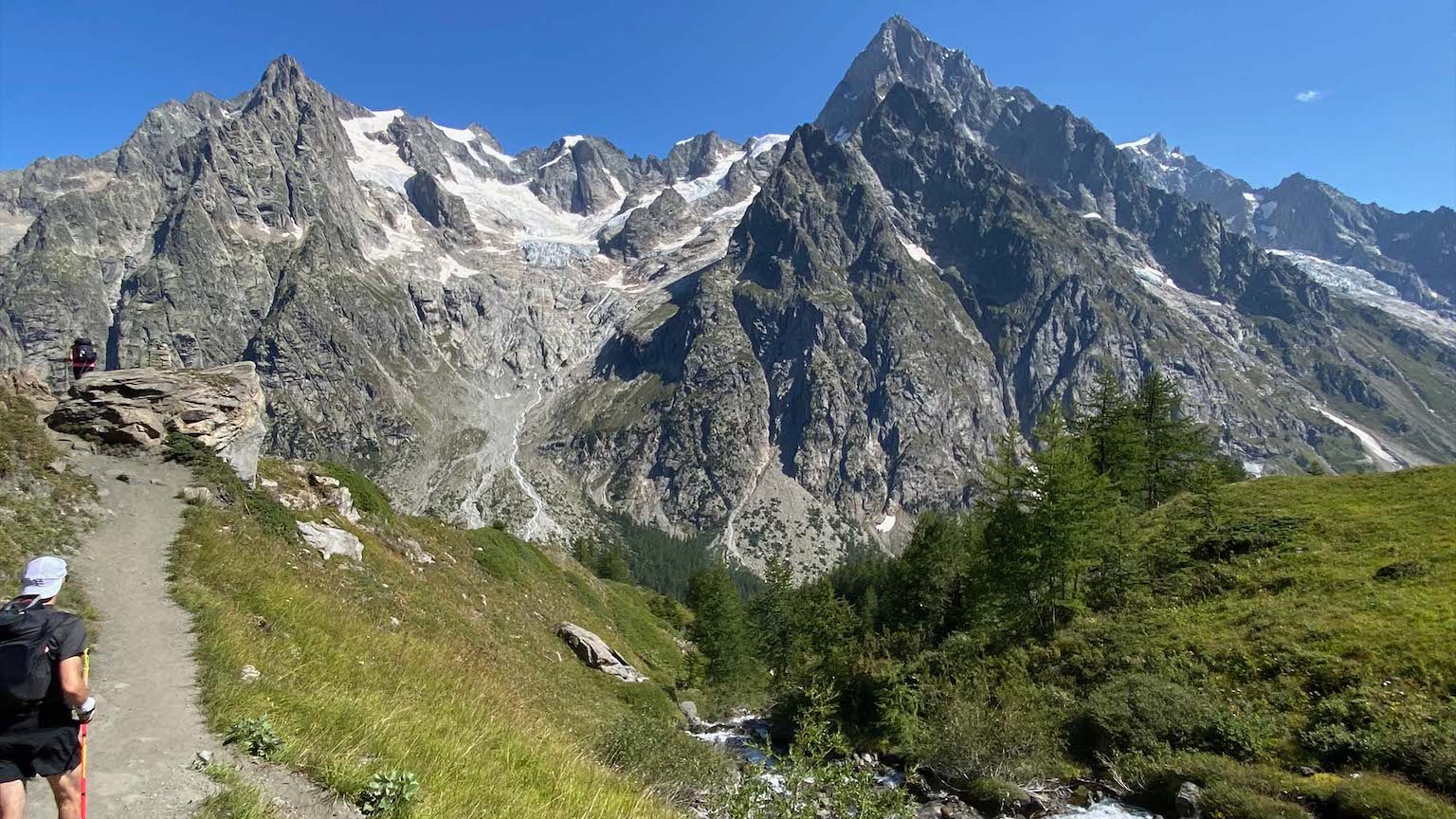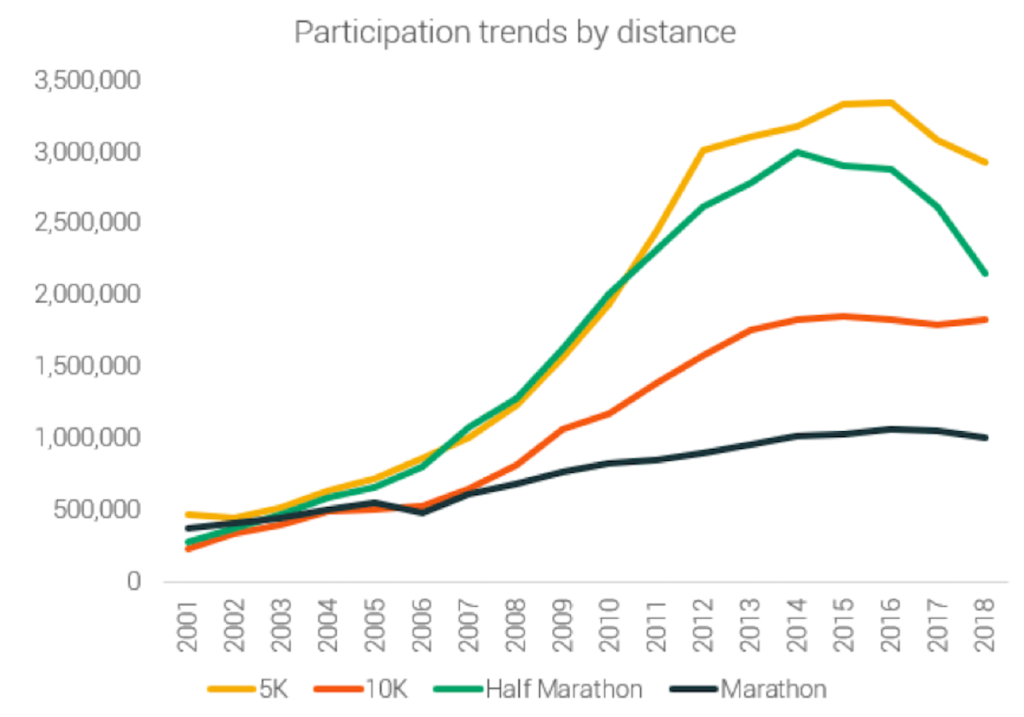Running wild

Photo: the author running in Sequoia National Park (photo by Kari Gleiser)
Those who know me, know that apart from my research in theoretical physics and writings on science and culture, I’m an avid long-distance trail runner.
It’s a funny thing to talk about to people who don’t run at all, or that run ten or fifteen miles a week on paved roads. There is a great divide here, and it’s hard to explain why some people willingly choose to spend hours running up and down mountain trails, despite the obvious physical discomfort of pushing your body well beyond what most find acceptable or even healthy. Yet, those who do it couldn’t live without it and find it exhilarating, despite, or because, of the pain.
When I tell my colleagues that I have a 50- or 60-mile race on the French Alps or the mountains around Cape Town, heads shake in disbelief and almost disdain. (My next one is the Ultra Dolomites, in the Italian Dolomites, a grueling 87 kilometers—54 miles—with 15,000 feet of elevation in beautiful terrain.)
Over the years, I’ve learned to keep my mouth shut and just share my adventures with fellow ultrarunners, those who run races longer than a marathon. And with my students. I love to see their faces, when they hear that their 60-year-old prof runs with 20-year-olds on treacherous terrain. For one thing, it demystifies the nerdy scientist image. For another, it shows that sometimes the hardest path is the one worth taking.
People run for all sorts of reasons. Of course, we all want to be fit, and there is nothing quite like running to stay in shape. So easy, just put on a pair of running shoes and go for it. No bike, no swimming pool, no gym pass. But in the ultrarunning community, fitness is a given, not the goal. Quite the opposite, the danger is in overtraining, pushing your body until it breaks.
Pain as part of the process
That says something about ultrarunners. We accept pain as part of the process. And what process is this? Well, here things vary a bit. Some people run to exorcize their inner demons, others to find a level of peace and tranquility that is hardly possible in the daily grind of our busy lives. Some want to connect viscerally with Nature, in ways that a quick hike along a mountain path only serves as an appetizer.
There is something deeply primal about running in the woods, in the desert, in the valleys and mountain ridges, past rivers and alpine lakes, something that journalist and writer (and ultrarunner) Christopher McDougall captured in his best-selling book Born to Run. (You can watch McDougal’s TED talk here.) We evolved to do it, being biped apes with sweat glands, a killer combination for long-distance running. But we have forgotten all that, as we walled ourselves in the crowded urban jungles of modern life.
As a result, something went amiss. As Norwegian explorer and writer Erling Kagge argued in his book Silence, we lost touch with our inner essence, being constantly distracted by the insistent pull of flashing screens and lights, of social media, and of noise. So much noise.
It is not something that we are aware of until it hits us, if it ever does. I only truly realized what was going on after I moved to Hanover, New Hampshire, a small college town bisected by the Appalachian Trail and home to Dartmouth College, where I work. Before, I had hiked the Rockies many times as I summered in the Aspen Center for Physics, and had visited several National Parks in the U.S. and abroad. I grew up in tropical Brazil, and had experienced the explosively luxuriant Atlantic forest from an early age, sauntering about the dirt paths around my grandparents summer home in the mountains outside Rio. I saw Nature, I treasured its beauty, but I wasn’t listening hard enough. There was a disconnect still, a lack of awareness of what it meant to be out in the natural world, to actually be with Nature. I hiked the hills without a sense of adventure, without a quest, without a sense of belonging. I admired the scenery without experiencing it whole.
Living in Hanover, however, you just can’t avoid the mountains. They are everywhere, ever-changing with the seasons, shrinking us to size. Maybe it was this insistent call, amplified by my wife’s exhortation: “Let’s get out into the woods, hike the White Mountains, experience the stunning beauty around us.”
At a visceral level
About ten years ago, something snapped. I started to run longer distances, venturing out more. It wasn’t easy or pleasant. My father-in-law, Paul McCadam, who runs half marathons in under two hours at 71, gave me the extra push I needed. In time, running became something different, more of a way of life than a chore. I met other long-distance runners, and, with my wife, started to participate in Spartan obstacle course races, grueling events that mix running rough mountain trails with boot camp-like obstacles that include rope climbs, monkey bars, heavy carries up and down hill, and other joyful tasks designed to break you. Through the pain, sweat, and bruises, I discovered what was amiss in my life. This was way beyond going out for a hike in the woods. This was an integration, a process of becoming one with our primal urge to experience the natural world at a visceral level.
As I increased the distances and switched my energies into mostly running mountains, I realized something that may sound crazy to most people: through the pain, suffering, and, yes, explosive moments of joy that are inevitable in such pursuits I felt an awakening, a connection with parts of me that I didn’t even know I had. Our bodies, I learned, can do much more than our minds let us believe. When you are out there, after twenty miles, and your legs start to hurt, your brain begins to signal you to stop. But with proper caloric, water, and electrolyte intake you can (after years of training) endure the mental torture and tell your mind to shut up. It mostly works.
At some point, as the miles accumulate, the pursuit of endurance becomes a pursuit for self-transcendence. Running long distance speaks directly to our mortality. By exposing our physical fragility, it becomes an act of rebellion, a cry against the passage of time and inevitable decay.
Endurance running is, I believe, the embodiment of the Welsh poet Dylan Thomas’ famous lines:
“Do not go gentle into that good night; rage, rage against the dying of the light.”
Mind and body moving, united, in the pursuit of timelessness.
The post Running Wild appeared first on ORBITER.





